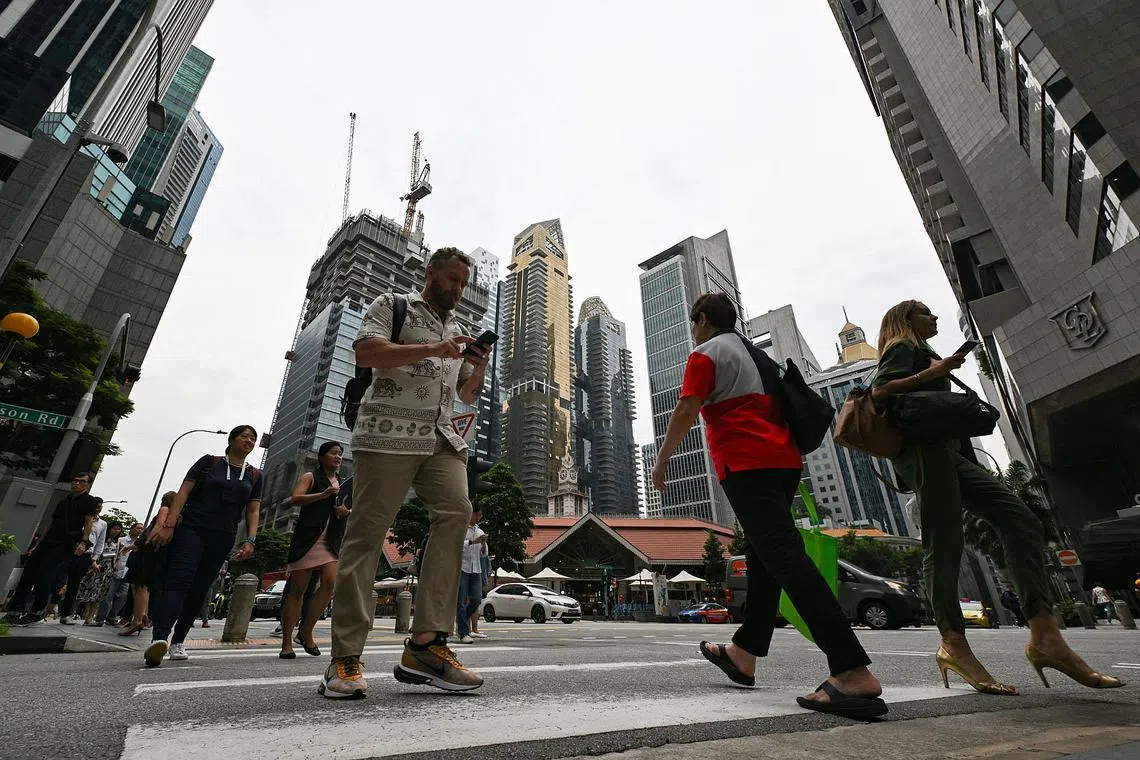For subscribers
High inflation and interest rates: Supporting Singapore households, businesses and banks can be a wicked problem
The higher cost of borrowing for homes, cars and business investments may mean stronger downside risks for the Singapore economy, but there are policy tools to deal with them.
Sign up now: Get ST's newsletters delivered to your inbox

Policymakers must proceed with caution where the attendant policy remedies could potentially hurt a different segment of the population.
ST PHOTO: LIM YAOHUI
Sumit Agarwal and Chua Yeow Hwee
Follow topic:
Singapore has experienced an unprecedented scenario of a double whammy – high inflation and interest rates.
The Consumer Price Index is expected to reach a two-decade high of 6 per cent and stay elevated. Interest rates have ticked up, as most loans are based on the Singapore Overnight Rate Average (Sora) or the Singapore Interbank Offered Rate (Sibor) which moves historically in tandem with the interest rates set by the US Federal Reserve. Singapore banks are also incentivised to keep up in the competitive fight for deposits, with UOB raising the maximum rate to a shocking 7.8 per cent.

